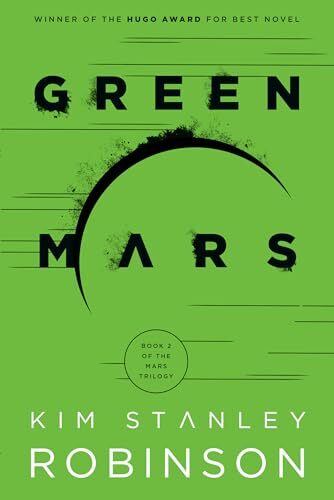
The good
-
Picking up where the first book left off, this sequel provides a somewhat plausible look at what it might take for humans to Terraform and live permanently on Mars.
-
Some interesting discussions of the consequences of settling a new planet from philosophical, political, and economic viewpoints. The book also makes an argument that the humans who are born on Mars may, after just a generation or two, start to resemble a new species due to the differences in gravity, atmosphere, ecosystem, culture, and upbringing.
-
A fun look at some of the technology it would take to change the ecology of an entire planet in a short time frame: e.g., continent-sized orbital mirrors to provide more light and heat, introducing plants and bacteria to create various gasses (oxygen, carbon dioxide, etc.), space elevators to efficiently transport things between the surface and outer space, digging manholes to form volcanoes, and so on.
The not so good
-
This book seems to meander all over the place. The first book felt much more focused: a group of 100 settlers comes over, starts to set up society, runs into issues, deals with them, etc. This sequel starts 50 years later, which is already a huge jump, and continues to make many more huge jumps in timeline. It follows a number of characters, looks at a large number of loosely-connected stories, goes into excruciating detail on some of them, but leaves others unfinished or vague. To be perfectly honest, I was bored during large stretches of the book, and found myself tuning in and out. Very little of the book was gripping.
-
Due to the large, sweeping timeline, and the tendency to jump all over the place in this book, the characters seem even less developed and believable than the last one. It’s hard to get attached to or care about any of them, which makes the book even less engaging.
-
I think, to some extent, this is a problem of the book “jumping scales” too much, from the tiny details of a single person’s struggle daily struggle all the way up to the massive multi-planetary struggles of giant governments and multinational corporations across centuries.
